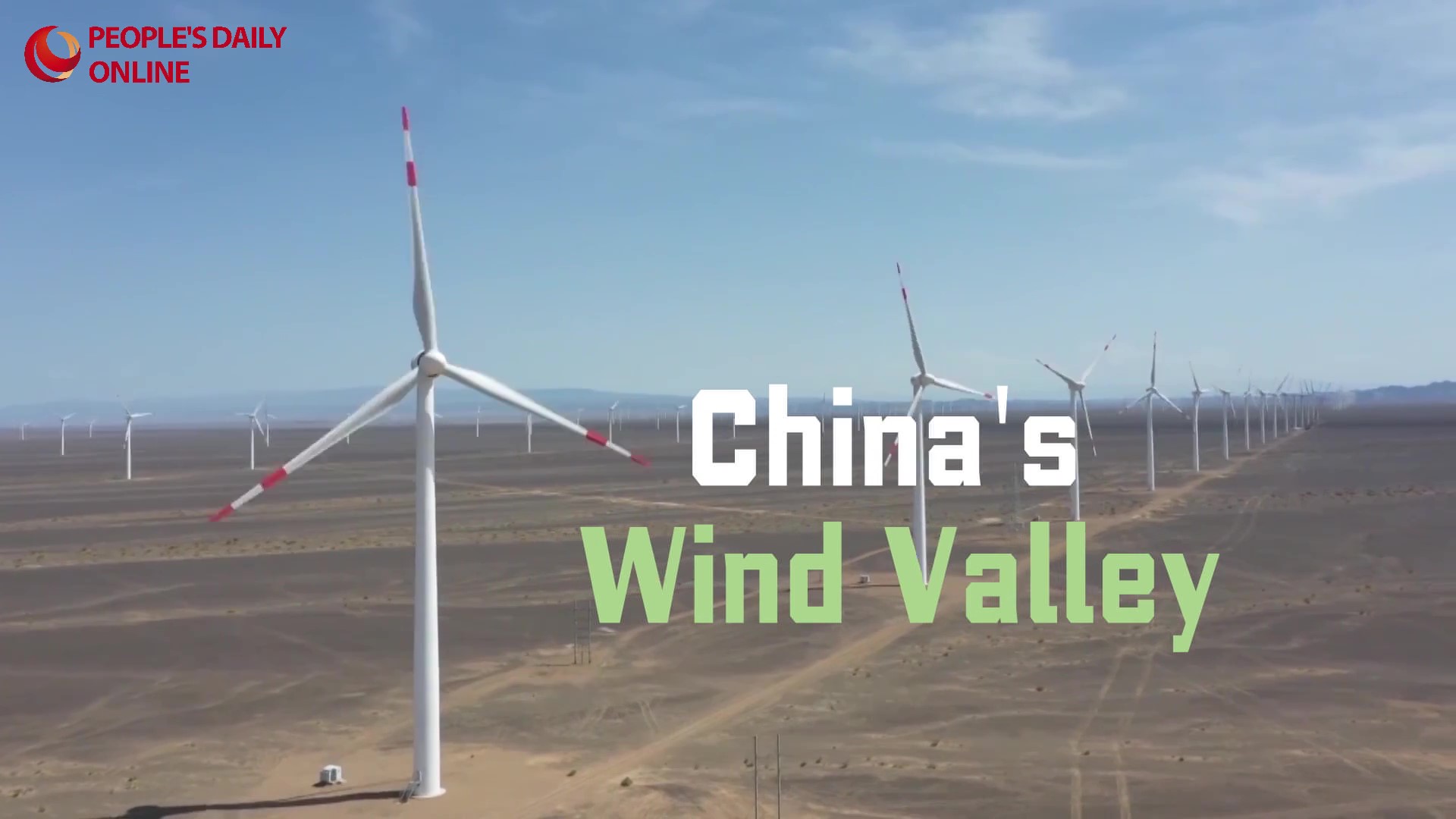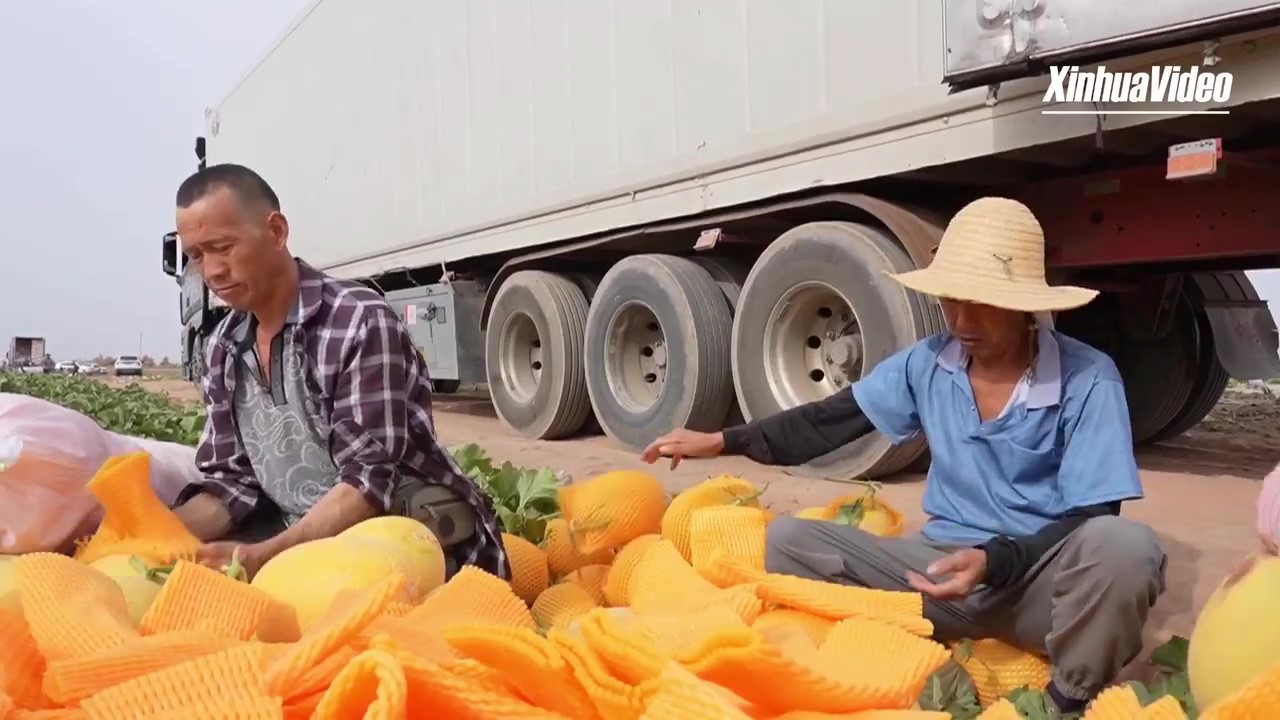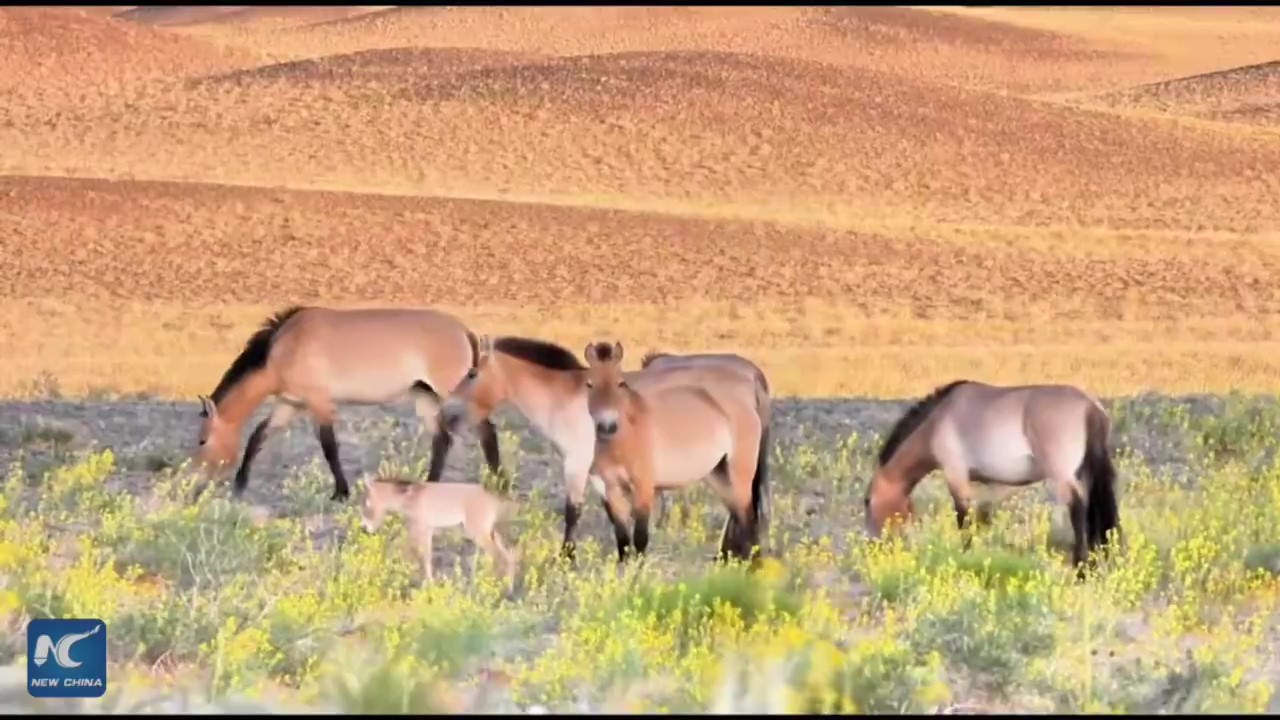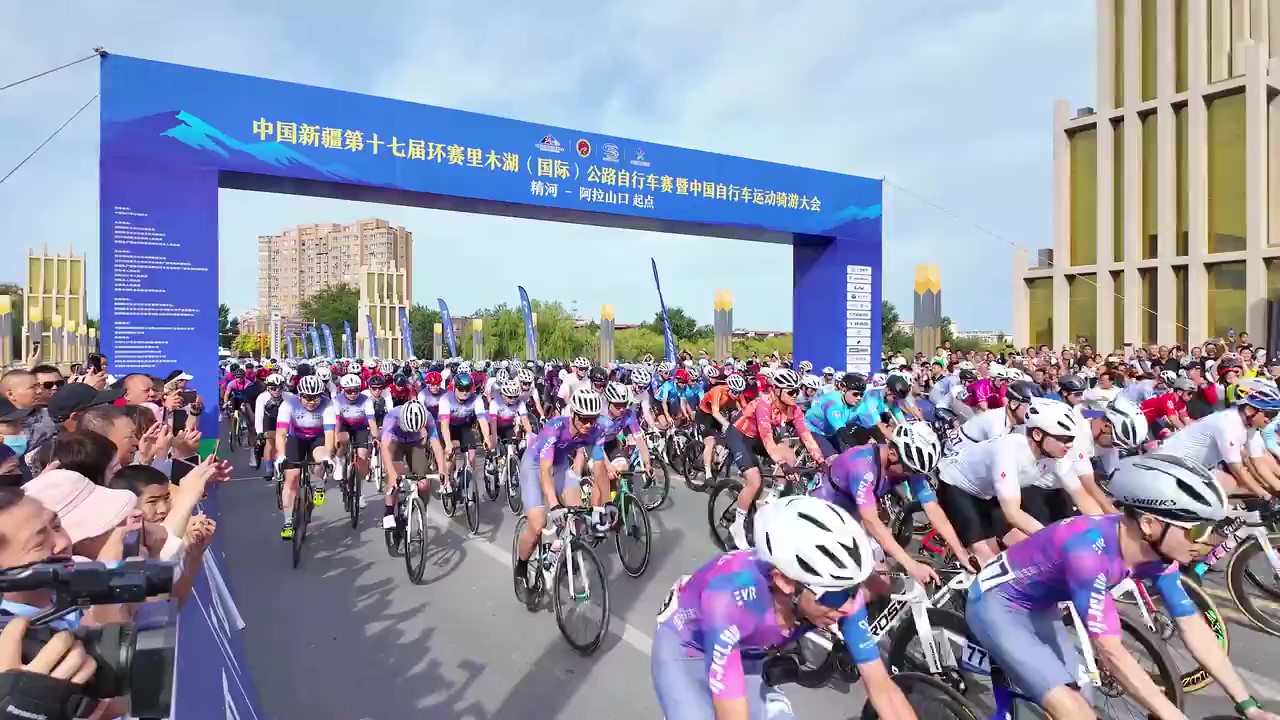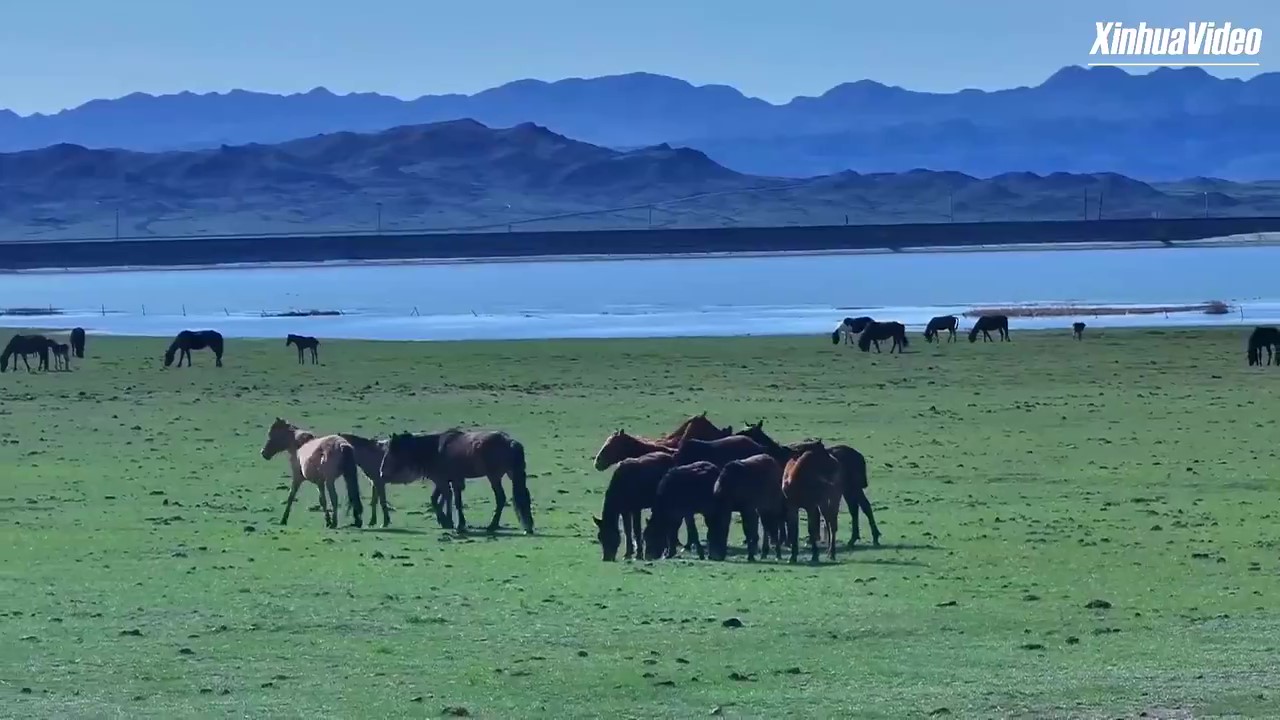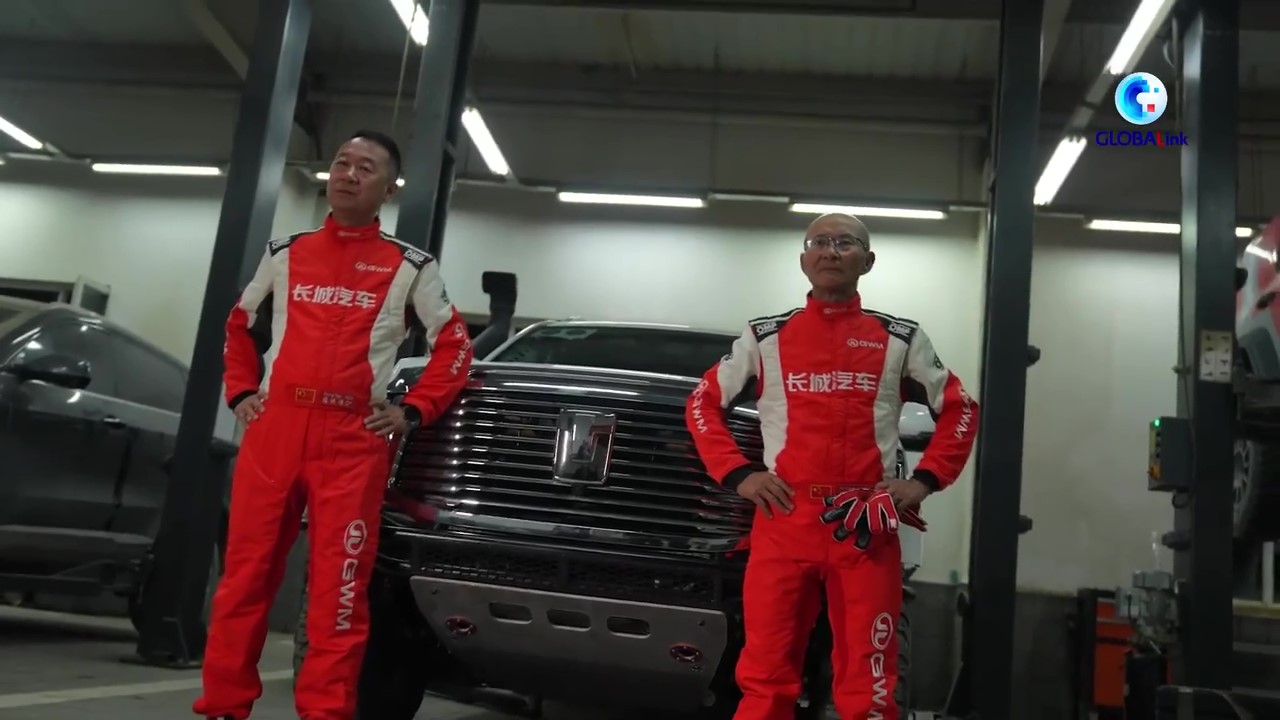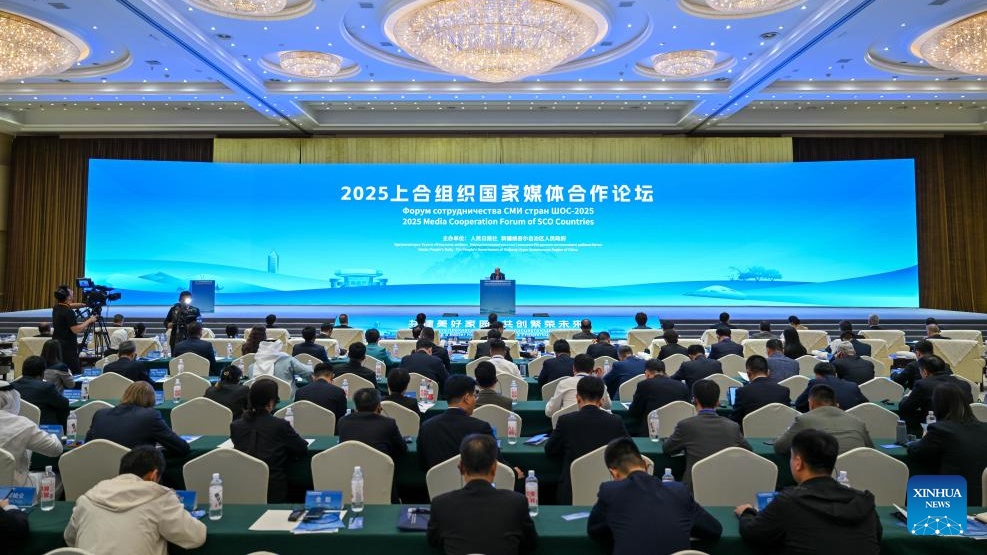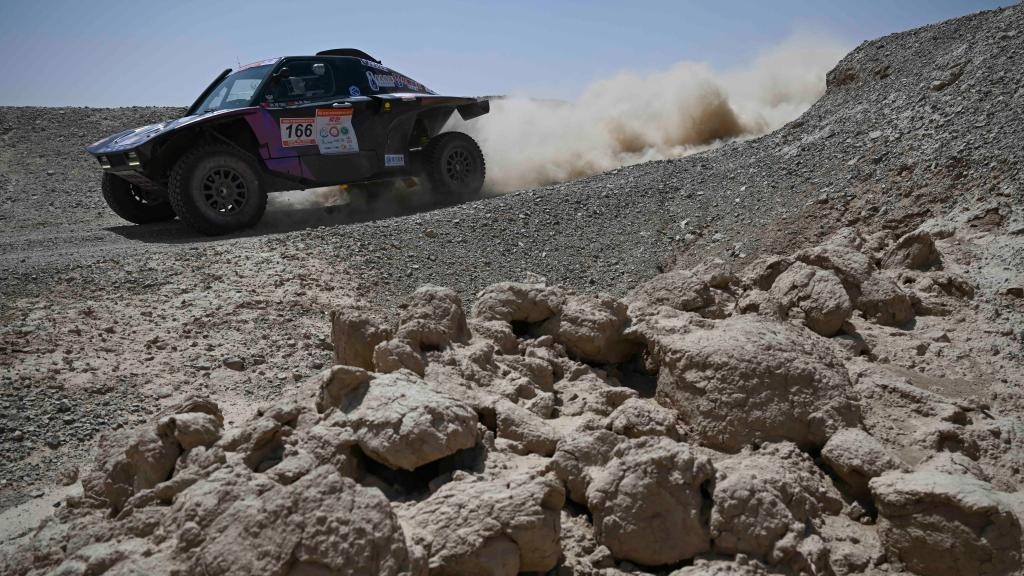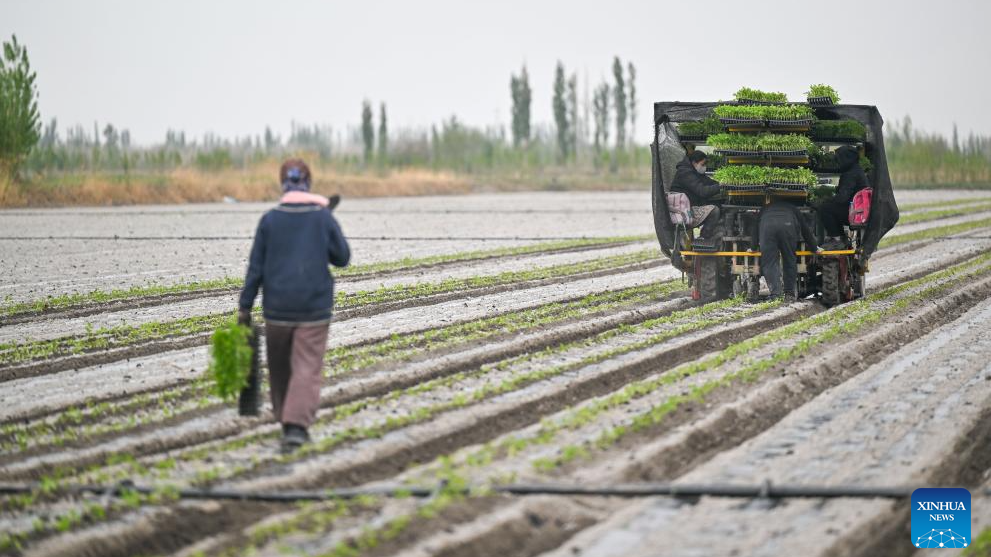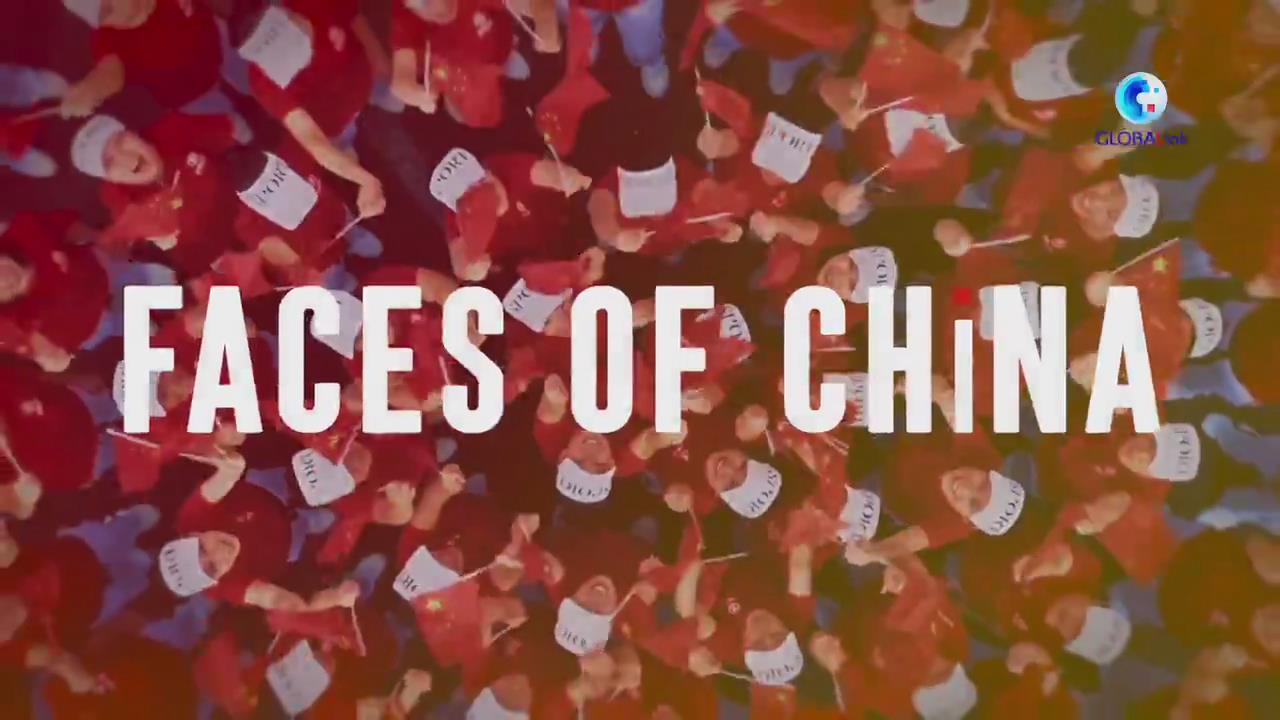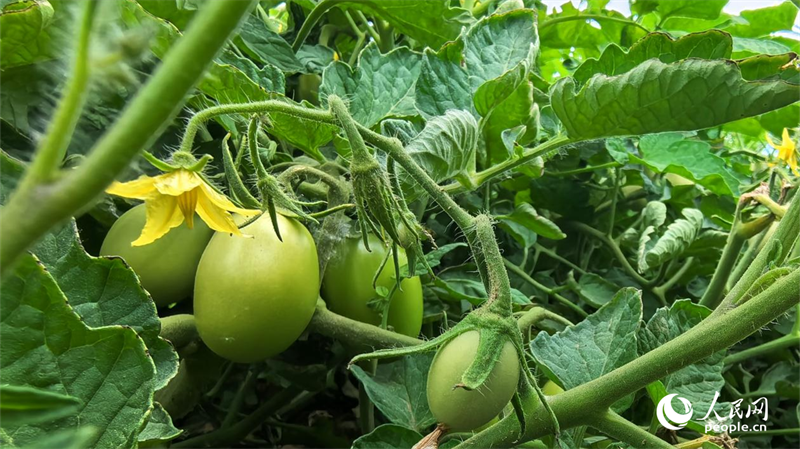
Processing tomatoes grow well in a field in Guangdonghu village, Erliugong township, Changji Hui Autonomous Prefecture, northwest China's Xinjiang Uygur Autonomous Region. (People's Daily Online/Han Ting)
Unique geographical advantages of long sunshine hours and large temperature differences between day and night in northwest China's Xinjiang Uygur Autonomous Region have made it one of the most suitable places in the country—or even the world—to process tomatoes.
The tomato industry is one of the eight characteristic industries in Xinjiang. A business model that features cooperation among companies, planting bases, and farmers has not only ensured high-quality tomatoes but also boosted the farmers' incomes, helping drive the vitalization of rural industries.
"We sign contracts with farmers and provide seeds and planting guidance for them. Standardized cultivation practices ensure the distinctive flavor and high quality of Xinjiang's tomatoes, which have become a calling card of the autonomous region," said Yu Chunshan, vice president of the tomato industry association of Xinjiang and general manager of Xinjiang Xiaochu Food Co., Ltd.
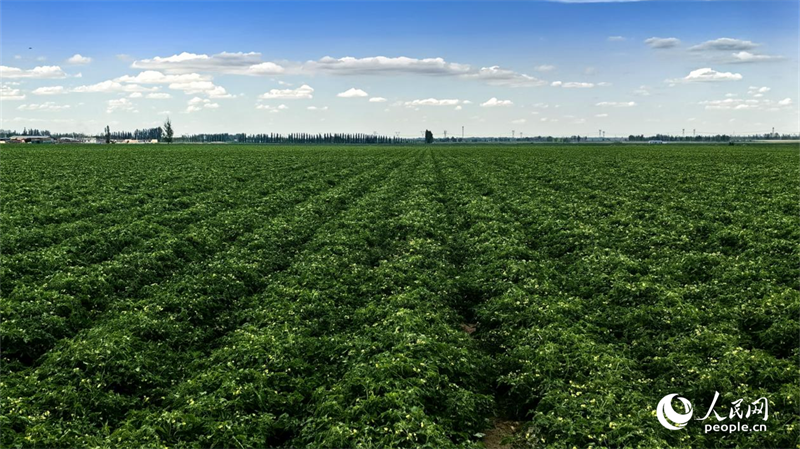
Photo shows processing tomato fields in Guangdonghu village, Erliugong township, Changji Hui Autonomous Prefecture, northwest China's Xinjiang Uygur Autonomous Region. (People's Daily Online/Han Ting)
Yu added that the company is currently expanding production. A new intelligent tomato processing plant with an annual production capacity of 200,000 tonnes is set to begin operations in August.
Zhang Bin, a farmer in Guangdonghu village, Erliugong township, Changji Hui Autonomous Prefecture of Xinjiang, grew 4,000 mu (266.7 hectares) of processing tomatoes this year for two companies.
"Tomatoes are grown in one season per year in Xinjiang, with the rate of mechanization from transplanting to harvesting reaching 100 percent," Zhang said.
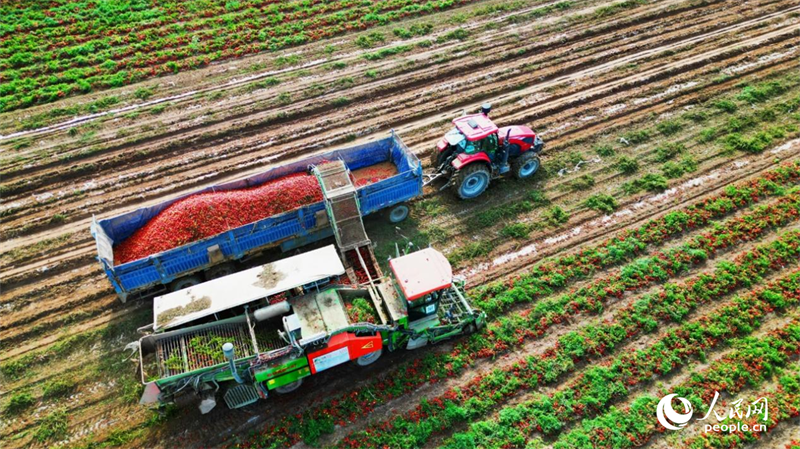
Machines harvest processing tomatoes in a field in Xingfu village, Erliugong township, Changji Hui Autonomous Prefecture, northwest China's Xinjiang Uygur Autonomous Region, Sept. 20, 2023. (Photo/Liu Hua)
Mechanization and scientific management have consistently improved both the yield and quality of processing tomatoes. "Twenty years ago, the yield of tomatoes was about four to five tonnes per mu. This year, the yield is expected to hit 10 tonnes per mu," Zhang noted.
The townships of Erliugong and Yushugou form the core area of Changji's modern processing tomato industrial park. The annual average planting area of processing tomatoes in the two townships reached about 31,000 mu.

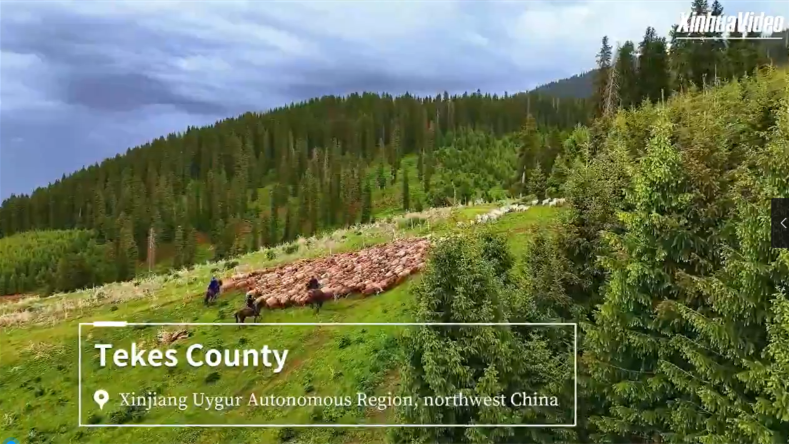
.png)
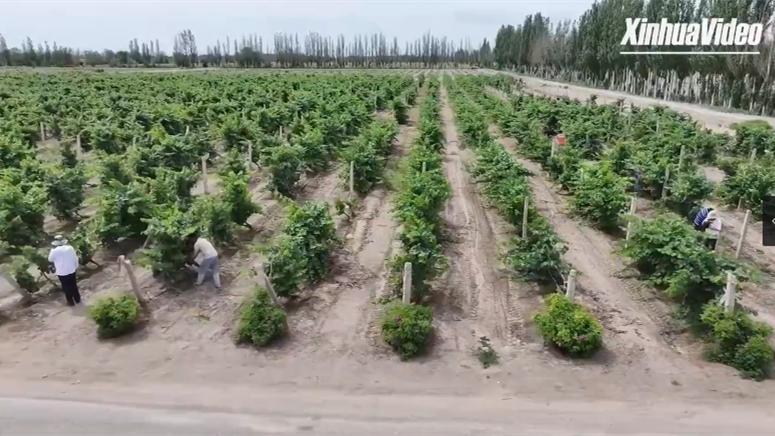
.png)

.png)


